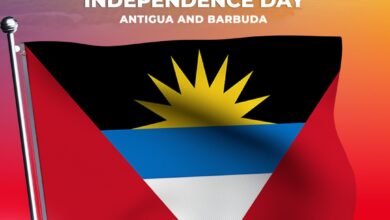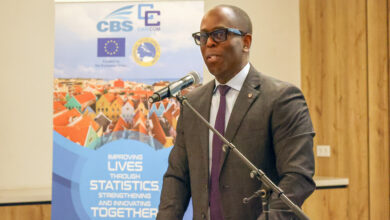Theme: GENDER AS A CROSSCUTTING ELEMENT
Salutation
It is my pleasure to bring you greetings on behalf of the CARICOM Secretary-General and the staff of the Secretariat, and to thank you for attending this the Twelfth Meeting of the Council for Human and Social Development (COHSOD). This meeting is particularly significant as it convenes for the first time, Ministers with responsibility for Gender Affairs in the Region. This meeting is also taking place at a critical juncture in the life of the Caribbean Community. In fact, 2005 has been designated the Year of the Single Market. It is therefore important that your discussions at this COHSOD contribute in some way to defining a successful pathway in which women and men join equally in the successful journey toward achieving both the Single Market and the Single Economy.
For some time now, gender issues have been moving unto center stage in the global arenas. Nowhere is this better illustrated than at the recently concluded the Forty-Ninth Session of the Commission on the Status of Women in New York, where I am pleased to say that Member States of the Caribbean Community were well represented. Under the slogan “Beijing at Ten, Achieving Gender Equality, Development and Peace,” several issues were discussed relating to gender equality and women’s empowerment such as human rights, leadership, violence, HIV/AIDS, health, armed conflict, trafficking and education of women and girls. A Declaration reaffirming commitment to achieving gender equality and women’s empowerment through the intensified implementation of the Beijing Declaration and Platform for Action and the outcomes of the Twenty-Third session of the General Assembly was adopted.
It is worthy to note that in this context, the Caribbean perspective continues to be more or less consistent with the global perspective. The issues articulated under Article XI on Women’s Rights in the CARICOM Charter of Civil Society 1992 remain pertinent today within the discourse of the women’s lobby. It states:
“For the promotion of policies and measures aimed at strengthening gender equality, all women have equal rights with men in the political, civil, economic, social and cultural spheres”.
However, it seems even more pertinent in this Year of the Single Market that greater attention must be paid to the under-performance and under-participation of boys in the educational system at all levels and the implications for the future of gender relations itself. Minister Shadick mentioned the inequality at the tertiary level with young women outnumbering young men in Guyana . Sadly, this phenomenon is repeated in other Member States of the Region.
I am therefore very glad to note that this COHSOD is focusing on gender mainstreaming in education and in this respect will actually be reporting on the findings of a study aimed at understanding the extent, the causes and consequences of gender differentials in educational achievement. Hopefully this study will provide the basis for policy formulation that contributes to the value of the CARICOM Gender programme within the international framework. It would bring credibility and respect to the programme especially since the activities that it advocates would shift the equation from idiosyncratic to evidenced-based criteria. The theme of this meeting, Gender as a crosscutting element in development is therefore quite fitting.
Shifting the equation from women to gender
In this shifting equation from women studies to gender relations – from WID to GAD – there is justification for promoting gender equality and women’s empowerment as complementary developmental challenges. The well being of society is dependent on taking into account the roles of men and women alike, their demands, entitlements and access to resources and services if we are to increase human capital, economic productivity and growth and to improve the quality of life.
The fact that the importance of gender equality and women’s empowerment is critical to development is underscored by Goal three of the Millennium Development Goals (MDGs): promote gender equality and empower women. It is also the case that the application of gender as a crosscutting element for the achievement of the other Millennium goals was recognised as an imperative by the Millennium Development Task Force on Education and Gender Equality.
Gender and the Millennium Development Goals
The facts demonstrate that the Caribbean Community ranks relatively high on the Gender Development Index and Gender Empowerment Measurement. There is however a countervailing view that the statistics mask the reality. According to a 2004 World Bank study on Gender differences, these glowing ratings fail to reflect the gender biases or hierarchy in the labour market or the political and social system that continue to favour men. The gender inequalities in the region are reflective of women’s “unrealized potential of integration in the economy, the social and economic cost of violence against women, and the loss in human capital from maternal mortality” (World Bank, 2004). It is a responsibility of the CARICOM Gender programme to also pursue the veracity of this assertion with a view to advising our governments of the necessary corrective actions required.
The irony that emerges from the World Bank Study is that while life expectancy for females, female literacy rates and girls’ enrolment in primary and secondary schools have all increased, women continue to be poorly remunerated in relation to men and continue to be poorly represented at the senior decision making positions, not withstanding the efforts nor the gradual increases that are far less than commensurate with the performance of our females in the academic arenas. Maternal mortality, HIV/AIDS, violent crime, educational attainment, labour force participation and earnings, and life expectancy have been identified as key gender issues for the Region. Additionally, the Region is characterised by poverty, another study by UNECLAC 2002 shows the disproportionate impacts on women and, generally, the poorest of the poor are women.
The Caribbean has been generally responsive to some of the indicators in the MDGs related to gender, such as the achievement of eliminating the gender disparities in primary and secondary education. However, here are three additional indicators of gender equality: literacy rates, the share of women working in non-agriculture jobs, and the proportion of seats women hold in national parliaments that need to be assessed. Achieving equal access to education is not enough. Gender asymmetries continue to persist in the labour market: lack of access to land; and struggles around credit, equality before the law and the ability to participate in public life and decision-making processes.
Advocating for Gender Equity
At the mid-point of this first decade of the twenty-first century, there is the prevailing view from the international women’s lobby of the persistence of old challenges and emergence of new ones that continue to impact upon the commitment to gender justice.
To ensure that gender equality and women’s empowerment enter into National and Regional dialogue, there must be the political will and commitment to highlighting the nuances of gender differentiation. Concomitant with political will is accountability that makes it critical to develop indicators, which reflect the nuanced reality of the Caribbean and track the progress to gender justice. Further, the elimination of gender inequalities must become part of the core values of policy development, programme implementation, administrative systems and monitoring and evaluation mechanisms. It is equally important that advocacy and the government/NGO alliance remain important to the process of promoting social justice and equity.
I am confident that this meeting will strive to achieve the objectivity that would help us to move toward a path of greater social justice through the meaningful pursuit of the goals of the CARICOM Gender programme. Then we would have fully transitioned to a mature programme intent on realising “gender equity”
I wish you every success in these deliberations.





